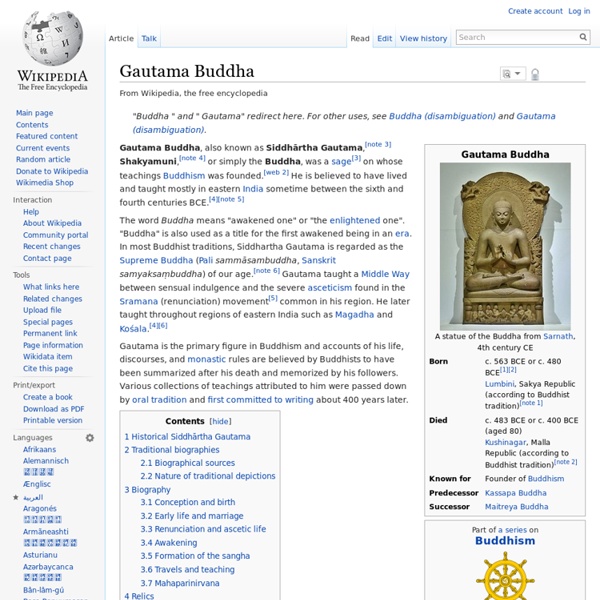Gautama Buddha

'Karma'
Endless knot Nepalese temple prayer wheel Karma symbols such as endless knot (above) are common cultural motifs in Asia. Karma (Sanskrit: कर्म; IPA: [ˈkərmə]; Pali: kamma) means action, work or deed;[1] it also refers to the spiritual principle of cause and effect where intent and actions of an individual (cause) influence the future of that individual (effect).[2] Good intent and good deed contribute to good karma and future happiness, while bad intent and bad deed contribute to bad karma and future suffering.[3][4] Karma is closely associated with the idea of rebirth in some schools of Asian religions.[5] In these schools, karma in the present affects one's future in the current life, as well as the nature and quality of future lives - or, one's saṃsāra.[6] With origins in ancient India, it is a key concept in Hinduism, Buddhism, Jainism, Sikhism,[7] and Taoism.[8] Etymology Karma is related to verbal proto-Indo-European root *kwer- "to make, form".[13] Definition and meanings History Taoism
100 Very Cool Facts About The Human Body
The Brain The human brain is the most complex and least understood part of the human anatomy. There may be a lot we don’t know, but here are a few interesting facts that we’ve got covered. Nerve impulses to and from the brain travel as fast as 170 miles per hour. Hair and Nails While they’re not a living part of your body, most people spend a good amount of time caring for their hair and nails. Facial hair grows faster than any other hair on the body. Internal Organs Though we may not give them much thought unless they’re bothering us, our internal organs are what allow us to go on eating, breathing and walking around. The largest internal organ is the small intestine. Bodily Functions We may not always like to talk about them, but everyone has to deal with bodily functions on a daily basis. Sneezes regularly exceed 100 mph. Sex and Reproduction As taboo as it may be in some places, sex is an important part of human life as a facet of relationships and the means to reproduce. Senses
Related:
Related:



